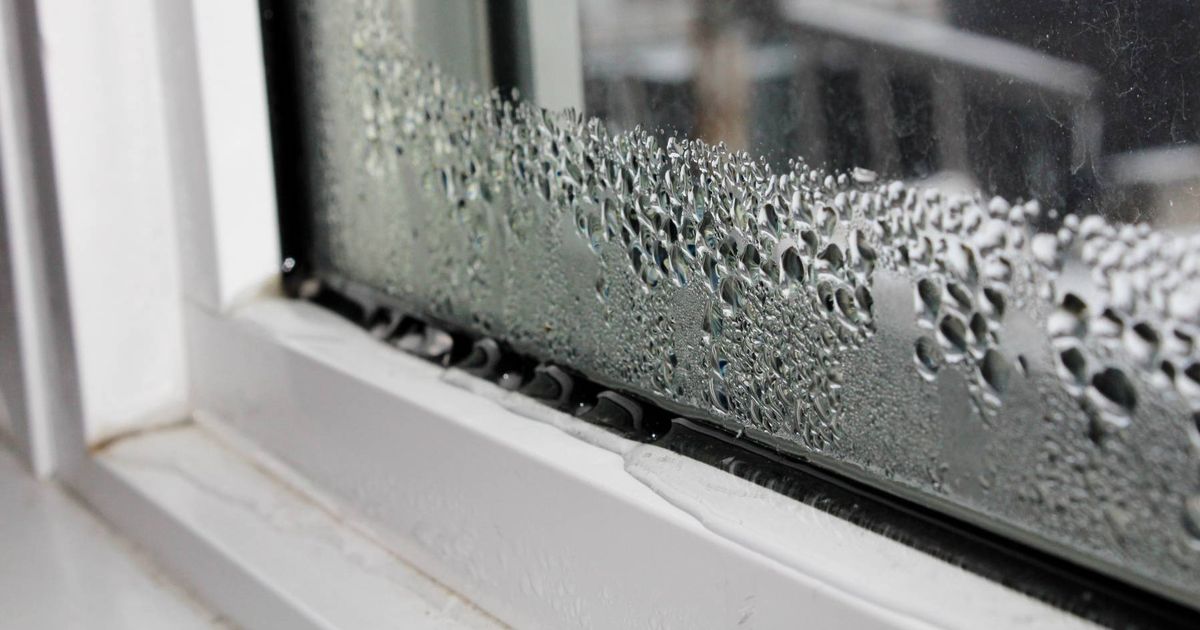Business
Tackle Window Condensation with Simple Tricks This Winter

Waking up to fogged-up windows has become a common issue for households across Ireland this month. With nighttime temperatures dropping close to freezing, many residents are noticing condensation forming on their glass surfaces. This phenomenon can lead to dampness and, if left unaddressed, may create serious problems such as mould growth and health concerns.
Condensation occurs when warm, humid air inside a home meets cold surfaces, particularly during the colder months. As homes are heated overnight while outdoor temperatures plummet, simple activities like cooking, showering, or even breathing can release enough moisture to coat windows. Houses with poor ventilation or high humidity levels are especially susceptible to this issue.
Experts highlight the importance of addressing condensation promptly. Ignoring it can lead to the development of black mould, which poses significant health risks, including respiratory issues such as asthma, eczema, and bronchitis. Therefore, tackling the root causes—be it inadequate insulation, poor ventilation, or elevated indoor humidity—is crucial for maintaining a healthy living environment.
Practical Solutions for Homeowners
One straightforward way to reduce condensation is by opening windows. George Holland, a bathroom expert from Victorian Plumbing, suggests that this simple act can help alleviate fogging in bathrooms. “Opening windows in your bathroom is an easy way to prevent your bathroom fogging up as the steam will simply flow right out of the window,” he explains. However, he acknowledges that during colder months, this may not be the most appealing solution after a warm shower.
Another effective method involves using vinegar as a fog deterrent. By mixing equal parts vinegar and water, homeowners can apply the solution to their windows and mirrors using a cloth, then wipe clean until no streaks remain. Holland notes that this technique can last up to a week, although it may produce a temporary smell. To counteract this, he recommends adding lemon or lime juice for a more pleasant aroma.
Social media has also introduced innovative approaches to tackling this issue. Anita Birges, a mother from Sydney, has gained attention for her home hacks on TikTok. She advises applying a small amount of dishwashing liquid to a microfibre cloth and rubbing it vigorously over the entire window, including the frame. “The dishwashing liquid creates a barrier that stops condensation from returning,” she explains.
Additional Tips for Prevention
Homeowners looking to further reduce morning condensation on their windows can take several additional steps. Maintaining adequate ventilation is key; using exhaust fans during cooking and showering can significantly decrease humidity levels. Regularly checking and upgrading insulation can also improve indoor air quality.
Investing in a dehumidifier is another viable solution, particularly for households prone to high humidity. This appliance can effectively remove excess moisture from the air, helping to prevent condensation from forming.
As households across Ireland contend with the challenges of winter, these practical strategies can help reduce condensation, protect homes from damage, and promote healthier living environments. By implementing these tips, residents can enjoy clearer windows and a more comfortable atmosphere during the colder months.
-

 Top Stories3 months ago
Top Stories3 months agoTributes Surge for 9-Year-Old Leon Briody After Cancer Battle
-

 Entertainment4 months ago
Entertainment4 months agoAimee Osbourne Joins Family for Emotional Tribute to Ozzy
-

 Politics4 months ago
Politics4 months agoDanny Healy-Rae Considers Complaint After Altercation with Garda
-

 Top Stories4 months ago
Top Stories4 months agoIreland Enjoys Summer Heat as Hurricane Erin Approaches Atlantic
-

 World5 months ago
World5 months agoHawaii Commemorates 80 Years Since Hiroshima Bombing with Ceremony
-

 Top Stories3 months ago
Top Stories3 months agoNewcastle West Woman Patricia Foley Found Safe After Urgent Search
-

 Top Stories5 months ago
Top Stories5 months agoFianna Fáil TDs Urgently Consider Maire Geoghegan-Quinn for Presidency
-

 World5 months ago
World5 months agoCouple Convicted of Murdering Two-Year-Old Grandson in Wales
-

 World5 months ago
World5 months agoGaza Aid Distribution Tragedy: 20 Killed Amid Ongoing Violence
-

 World5 months ago
World5 months agoAristocrat Constance Marten and Partner Convicted of Infant Murder
-

 Top Stories4 months ago
Top Stories4 months agoClimbing Errigal: A Must-Do Summer Adventure in Donegal
-

 Top Stories4 months ago
Top Stories4 months agoHike Donegal’s Errigal Mountain NOW for Unforgettable Summer Views









